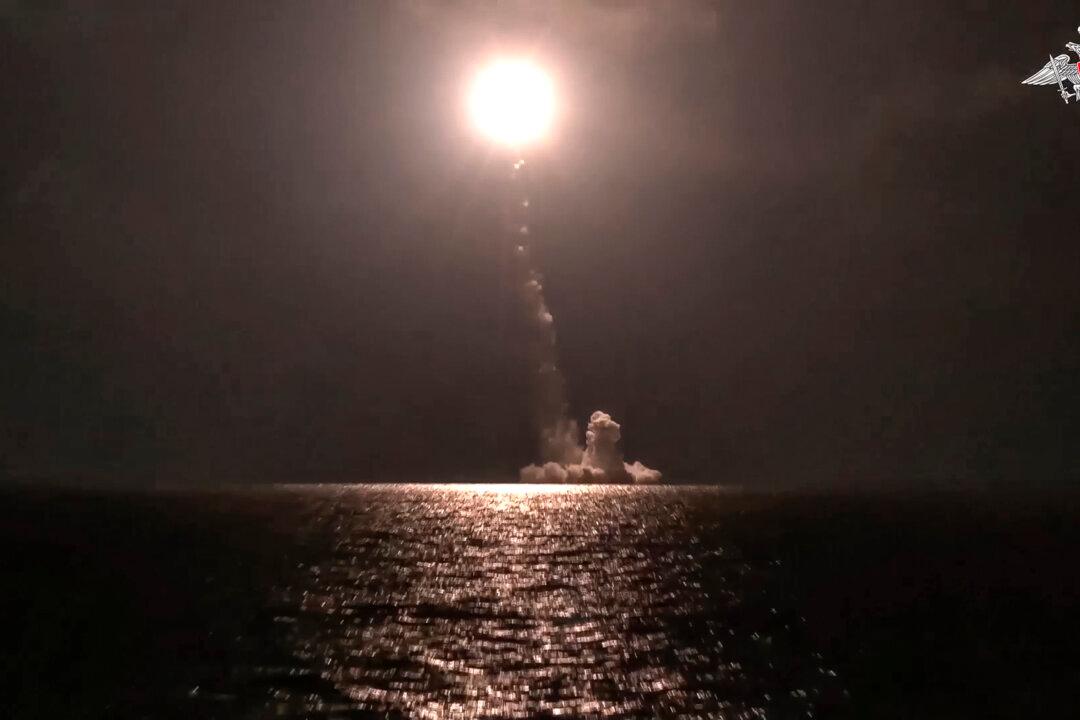Russian officials said on Nov. 5 that the country’s military test-fired a nuclear-capable intercontinental ballistic missile (ICBM) from a nuclear submarine.
The Russian Defense Ministry confirmed that a Bulava ICBM missile was fired from the nuclear submarine Emperor Alexander III during a test in the White Sea. The missile hit a target in the far-east region of Kamchatka, Russia, officials said, according to state-run media.





